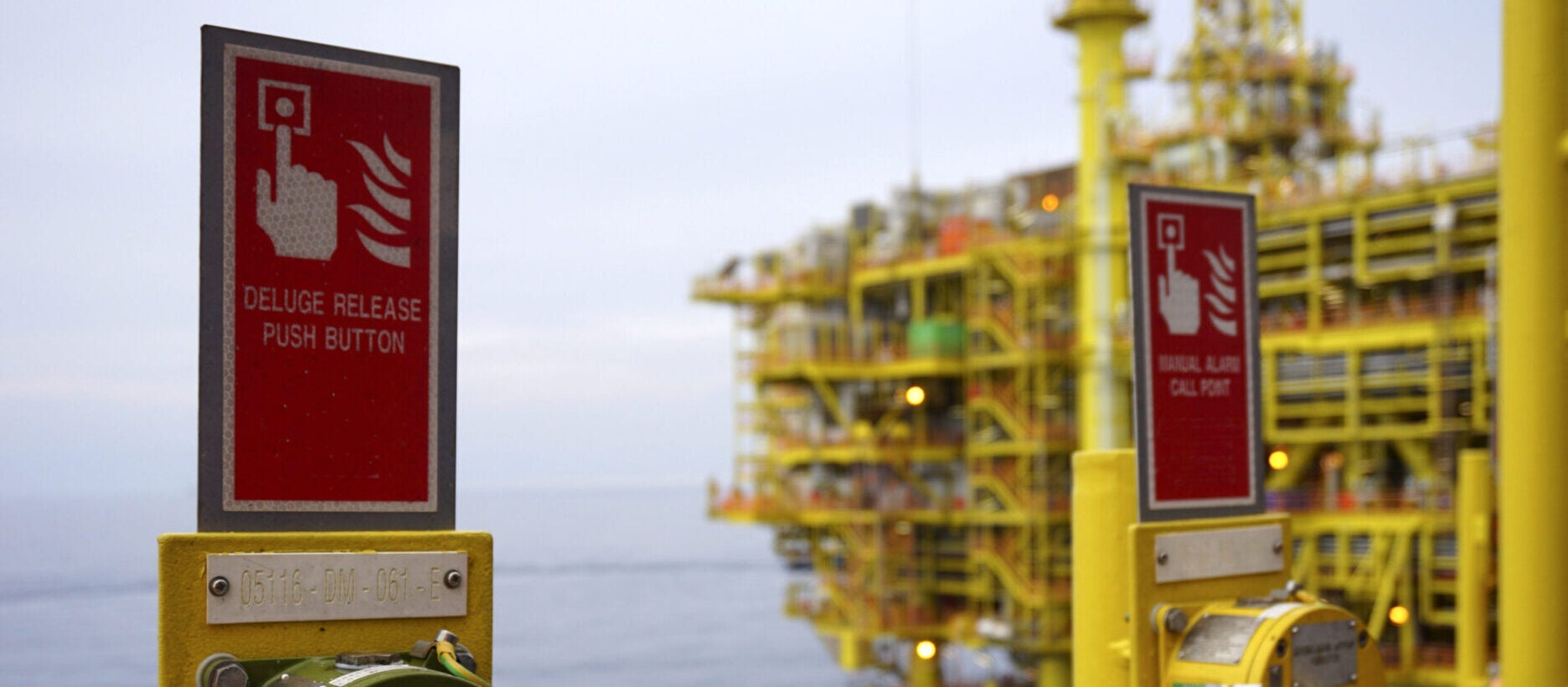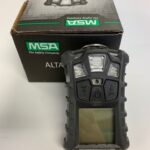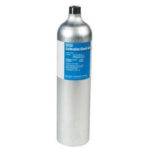Offshore Fire Safety Systems
The hazards of being on an oil rig every day are very real. There is a chance that fires can occur and it is essential to reduce the breakout of the blaze. With the proper fire suppression systems in place it will help to keep the workplace safer, savings lives and minimizing damage done to the machinery in the process.
GET IN TOUCH
Contact us now for expert advice, an immediate quote and same-day shipping
Contact us
The presence of oil and combustible gases on offshore platforms means that the utmost attention must be paid to offshore fire suppression systems and protocols. In most cases, offshore fires and explosions are preventable, including one of the most notorious disasters; the Deepwater Horizon explosion.
Inadequate offshore fire safety systems, insufficient training and poor communication/alarm networks can all contribute to a heightened risk of failure. The Oil Spill Commission highlighted a number of causes that led to the Deepwater Horizon incident, including inadequate infrastructure such as cement and valves, as well as the gas alarm failing and the leak not being detected early.
Offshore fire suppression systems
Offshore passive fire protection (such as fire-resistant coatings) is used to prevent fire from spreading. This is especially essential for protecting structural elements that provide an escape route.
According to the Health and Safety Executive (HSE), for offshore installations the most effective fire protection is water deluge. The lack of such active offshore fire suppression systems is not considered good practice. Additionally, active fire protection requires linked gas, heat and flame detection systems.
For water-sensitive areas, companies such as Honeywell provide clean agent fire suppression systems to extinguish fires.
Temperature and gas detection systems
Combustible or volatile gases can all pose risks to workers and result in devastating fires and explosions. Early detection of any problems is a must to ensure that workers and the surrounding environment is kept safe.
Carroll Technologies has searched the market to find the best quality gas detection equipment for offshore oil and gas industries that operate in adverse environments.
From MSA, Carroll supplies the Altair 4X and 5X multi-gas detectors for continuous monitoring of combustible or toxic gases, which also feature motion detection to alert others if the user has become immobile.
Honeywell supplies the BW Solo, which provides single gas detection for hazardous environments. The company also supplies temperature sensors, including temperature probes that operate under shock, vibration, humidity and corrosion, as well as thermostats that break electrical contact when a specified temperature is reached.
GET IN TOUCH
Contact us now for expert advice, an immediate quote and same-day shipping
Contact us
Our guarantees
- Same-day dispatch
- 24/7 support
- Authorized repair facilities
- MSHA approved
- Endorsed by manufacturers



